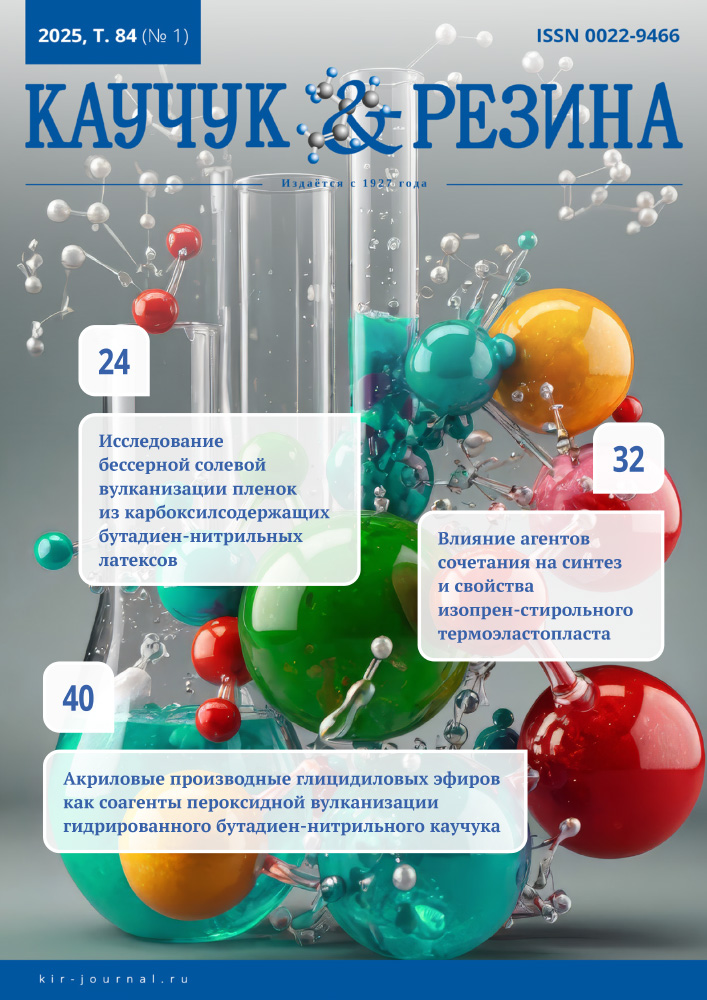Influence of the Composition of Petroleum and Vegetable Oils on the Crystallization and Glass Transition Temperatures as well as on the Vulcanization Characteristics of High-Molecular-Weight Neodymium cis-1,4-Polybutadiene and Compounds Based on it
Published 2025-02-25
How to Cite
Abstract
The influence of petroleum and vegetable oils on the crystallization temperature, glass transition temperature and crystallization interval, high-molecular oil-filled neodymium cis-1,4-polybutadiene, as well as on the vulcanization characteristics of rubbers based on it, in comparison with the imported oil-filled analog, has been studied. For the research, petroleum oils of the trademarks «Norman 346» (TDAE), «Norman 132» (MES), «Norman 239» (NLP), «Norman 5832 (TRAE) were used. In addition, vegetable oils such as «Phytonorman 212» and «Phytonorman 213» were used. The microstructure of the examined rubber samples was determined on a Perkin Elmer Spectrum 100 IR spectrometer using a NLPE attachment. The crystallization and glass transition temperatures were measured on a «NETZSCH DSC 204 F1 Phoenix DSC204F1D-0098-L» device using the DSC method according to ASTM E1356 in an argon atmosphere. Viscosity and Mooney relaxation were determined on Mooney viscometer «MV 2000» by «Alpha Technologies» according to GOST R 54552 at 100 °С, and rheometric characteristics were determined on the device «MDR 2000» by «Alpha Technologies» at 160 °С during 30 minutes and the amplitude of deformation 0,5°. In the case of petroleum oils, it is noted that the higher the content of aromatic hydrocarbons in their composition, the lower the crystallization temperature and the wider the crystallization interval in rubber. Among the oils presented, the greatest affinity with rubber was noted in the case of «Phytonorman 213» vegetable oil. This oil demonstrated the lowest values in terms of crystallization and melting temperatures, as well as a longer crystallization interval with a lower dosage in rubber compared to petroleum oils. It is also noted that vegetable oils, in comparison with petroleum oils, significantly affect the vulcanization characteristics, which is due to the presence of unsaturated fatty acids in them.

